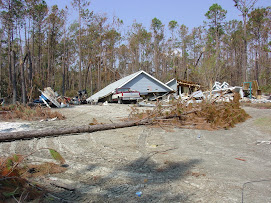Humanity is governed by minorities, seldom or never by majorities. It suppresses its feelings and its beliefs and follows the handful that makes the most noise. Sometimes the noisy handful is right, sometimes wrong, but no matter, the crowd follows it.
Oddly enough, Mark Twain's quote comes from
The Mysterious Stranger- in the world of blogs and message boards, mysterious strangers are the norm. Here, for example, I am known as
Promise; but,by any name, am a modern day
muckraker.
I still believe most do; but, I am no longer so green that I can’t spot a
Yellow Kid or recognize comments made by those that reflect the British English
application of the word to sensationalist scandal-mongering journalist, not driven by any social principles.
Allegations and indictments have, as Cowboy would say,
slabbed the integrity of our State’s legal system. Grief is a natural response, and anger is a natural part of the
grieving process.
Scandal-mongering, however naturally it may come to some, is not anger – it’s the
sensationalized stories or outright lying that caused Joseph Pulitzer and William Randolph Hearst, two icons of American journalism, to be known as
the two Yellow Kids.

Pulitzer and Hearst are often credited (or blamed) for drawing the nation into the Spanish-American War…eventually resulting in…the most famous example of the exaggeration…a version of which appears in the Hearst-inspired film Citizen Kane - the apocryphal story that artist Frederic Remington telegrammed Hearst to tell him all was quiet in Cuba and
There will be no war. Hearst responded
Please remain.You furnish the pictures and I'll furnish the war.So - Who’s
furnishing the pictures of Attorney General Hood and who’s
furnishing the war on his integrity?
It would be less than honest not to acknowledge Hood himself is submitting a few
snapshots –
I didn't care who (Scruggs) supported. I wasn't crazy about being attorney general anyway.. – and equally dishonest not to consider the possibility Twain suggested -
Often the surest way to convey misinformation is to tell the strict truth.Yesterday’s edition of the Clarion Ledger generated a total of 160 reader comments from a
front page story and three separate
blog posts related to the allegation that indicted attorney Dickie Scruggs attempted to influence Hood.
Blogs started
developing that picture on the 25th -
that Jim Hood story was sitting there in Pacer at 7-8 PM or thereabouts. I started downloading stuff about then, and just didn’t get around to it till midnight.The first post was up early on the 26th and
Holy S--t Balducci, State Farm, Jim Hood, Scruggs – all together in one paragraph appeared shortly therafter.
During the day
related posts and news stories were linked to those already posted online.
Holy Cow! Do you see what this says? It says that Scruggs paid Balducci and Patterson half a million dollars to get Hood to back off the State Farm grand jury investigation. ..Seems to me that whole business needs to be explored some more, don't you think? If this is true, doesn't it qualify as some sort of improper influence of a public official?
By the evening of the 26th
another picture was developing on the blogs – one chiding
the old media are 24 hours behind the blogs…Actually, I’m going to frame this question more aggressively…What’s with the pros? – and, on the morning of the 27th, it was
ready to print.As you might expect, that $500,000 that Tim Balducci claims Dickie Scruggs (eventually, grudgingly) paid him and Steve Patterson to get Attorney General Jim Hood’s indictment of State Farm called off has made a splash in Mississippi’s largest newspapers this morning
On the 28th,
the Yellow Kid went big time with a level of sensationalism that spread an outright lie coast to coast under the banner of none other than
Legal News Line. Had it not been for my all time favorite blog post title
-
Why Legal News Line is fit only for the bottoms of virtual birdcages – the Yellow Kid’s nose would be longer than Pinocchio’s by now for claiming An FBI report released this week supported the headline Hood allegedly offered bribe from Scruggs.
The modest attempt to set the record straight -
Editor’s note: The following story is a corrected version of an earlier article that contained many inaccuracies – fell far short of any measure of retraction. Shortly after daylight today, Legal News Line was back to the bottom of virtual birdcages - Too bad you didn’t notify The Google, LNL. I hope this helps them sue your ass for libel.
Attributing an outright lie to an FBI report can only be called an amazing act of hubris – far stronger evidence than documented in the defense Motion to Change Venue:the print media blitz has been supplemented by Mississippi-based web logs (blogs) that report, in excruciating detail, every event in the prosecution and defense of the Scruggs criminal case; as well as their finding people piling on. Mr. Merkel. Mr. Tollison. The notion being at last he’s getting his comeuppance.
Judge Biggers called it
one of the most thoroughly researched briefs I have ever seen; later adding,
but it’s hard for me to believe there were no statements favorable to Dickie and denying the motion.
Considering the unanimous, accurate blog prediction of every ruling Judge Biggers made on the Defense Motions, Judge Biggers unquestioned integrity, and the assaults on Attorney General Hood, one can only wonder
who’s providing the pictures and
who’s providing the war - and
where all these warriors are hidden.
The only thing proven thus far is attributed to
Mark Twain:
Injurious truth has no merit over an injurious lie. Neither should ever be uttered. The man who speaks an injurious truth, lest his soul be not saved if he do otherwise, should reflect that that sort of a soul is not strictly worth saving.


